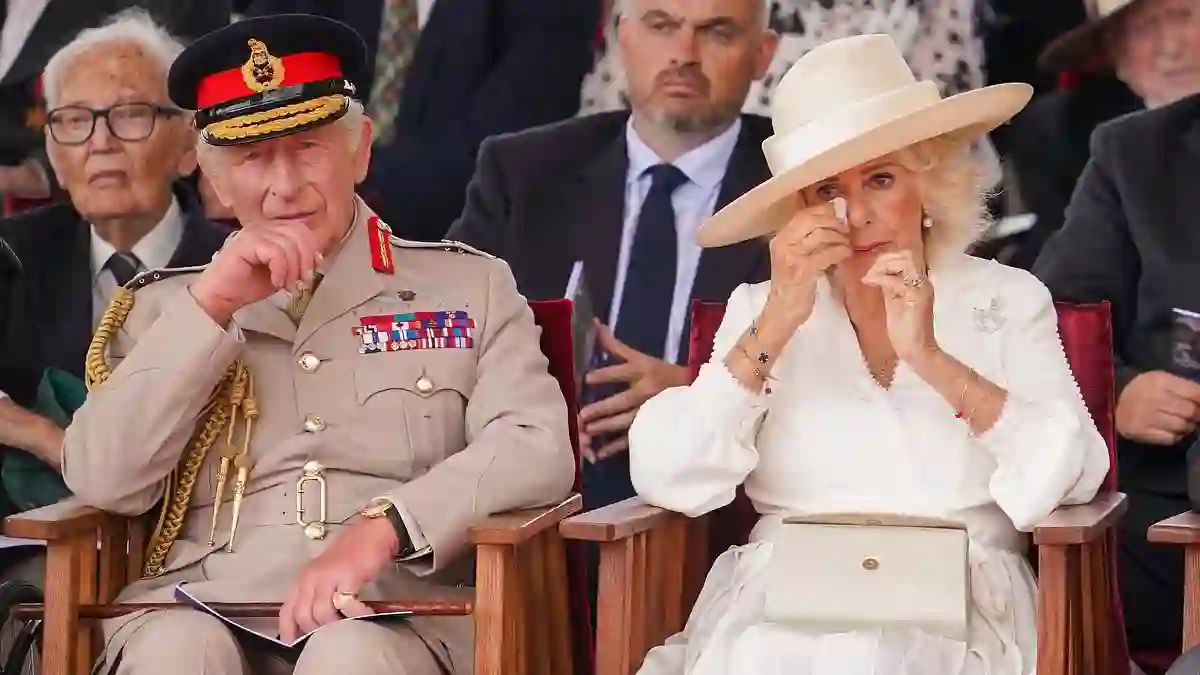Friday marked the emotional conclusion of the 80th anniversary commemorations of the Second World War, a day dedicated to remembering Victory in Japan (VJ Day).
For a few hours, the dwindling number of Far East veterans were no longer in the shadows—they were the focus, standing alongside the King, Queen, ministers, diplomats, and hundreds of proud families at the National Memorial Arboretum in Staffordshire.
Though organised on a fraction of the scale and budget of D-Day or VE Day events, the ceremony provided a long-overdue moment of recognition for those who had often been overlooked.
The relentless sun did little to dampen spirits, especially for the veterans who had endured the extreme heat, monsoons, and deadly tropical diseases in the Far East.
Stories from the Frontline
Among the most memorable moments were first-hand accounts broadcast on a giant screen.
Thomas Jones, a 103-year-old former Royal Artillery bombardier, shared his experiences of survival in the Burma campaign.
“Imagine you’ve never been able to have a wash or a bath or a change of clothing for 12 months,” he recounted, evoking laughter amid the tales of hardship.
He also described being saved by a Gurkha soldier during a Japanese attack, praising their bravery.
Sadly, Mr Jones passed away just a day after the service, and the announcement brought a ripple of sorrow across the audience.
Other veterans, like former Chindits of the Special Forces, shared harrowing recollections of daily encounters with death.
“As we neared the end of our time in Burma, death became an everyday occurrence, with bodies to bury almost every evening,” one veteran reflected, highlighting the grim realities rarely spoken of after the war.
Touching Personal Tributes
Families attending the service were visibly moved. Pat Crisp, 75, daughter of Major Richard Clarkson-Littleford, was brought to tears by the triple flypast of Spitfire, Hurricane, and Lancaster aircraft.
Former London truck driver Bill Smith, 78, wore the tropical uniform of his father, a Chindit sergeant, emphasizing the importance of remembering these forgotten warriors.
Courage and Character on Display
An impromptu moment came from Yavar Abbas, a 105-year-old former officer in the 11th Sikh Regiment, who read from his war diary.
He saluted the King for his presence, acknowledging that it ensured the 14th Army would no longer be called “forgotten.”
His diary recounted narrowly escaping death while his comrades were killed, a moment that visibly moved the royal couple, who warmly shook his hand afterward.
Queen Camilla also shared in the solemnity, sitting next to former Royal Navy telegraphist John Harlow, 100, who paid tribute to his friend lost aboard HMS Porpoise.
Throughout the day, wreaths and crosses honoured late fathers and grandfathers, highlighting the personal sacrifices behind the historic victory.
A Truly Commonwealth Victory
The ceremony also emphasised the international dimension of the Far East campaigns, with troops from India, Australia, Africa, and beyond outnumbering the British forces.
The King reflected on this, noting that coordination across faiths and cultures proved the greatest strength lay not in weapons, but in unity.
For the first time, Japanese representatives were part of the commemoration.
Akiko Macdonald, daughter of a Japanese officer who had fought at Kohima, and the Japanese Ambassador, Hiroshi Suzuki, laid wreaths at the Burma Railway Memorial.
Their participation, sanctioned by the remaining Burma Star holders, symbolised reconciliation and the enduring legacy of peace.
Looking Back and Moving Forward
The ceremony was a rare and beautiful convergence of memory, emotion, and recognition.
Veterans, their families, and dignitaries alike were reminded of the bravery, resilience, and sacrifices of those who served in the Far East.
From moving personal anecdotes to symbolic gestures of reconciliation, Friday’s event ensured that these once-overlooked heroes finally received the honour they so richly deserved.

